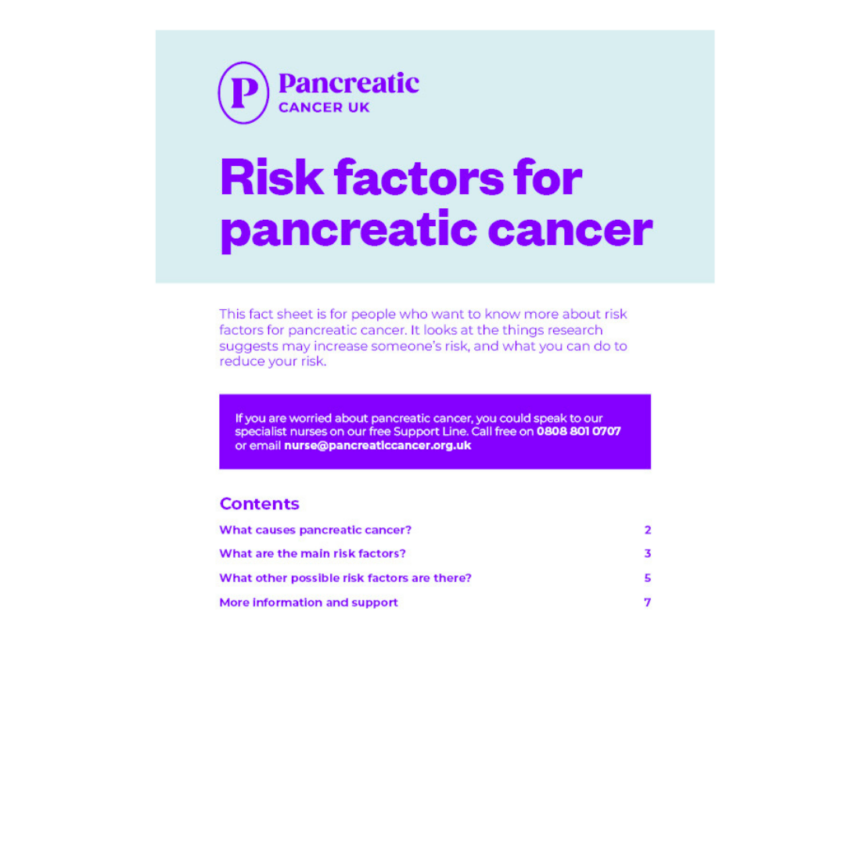How can I reduce my risk of pancreatic cancer?
We don’t fully understand how to prevent pancreatic cancer, but these things may help reduce your risk.
- If you smoke, get help to stop smoking.
- If you are overweight and don’t have pancreatic cancer, the NHS website has tips to help you lose weight.
- Find out about pancreatic cancer that runs in families.
- Get help with cutting down on alcohol.

